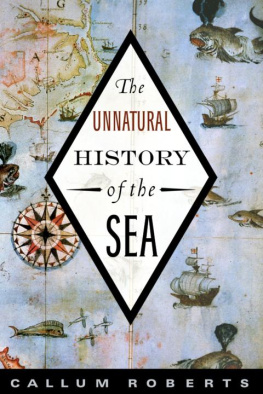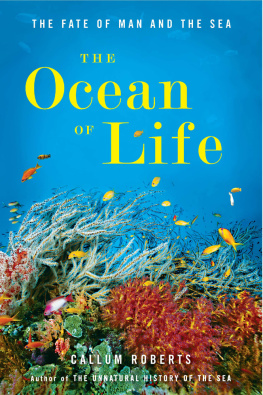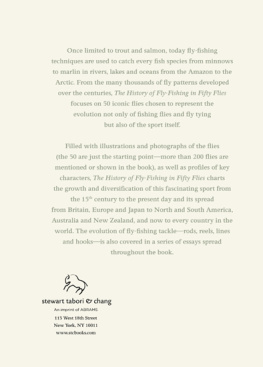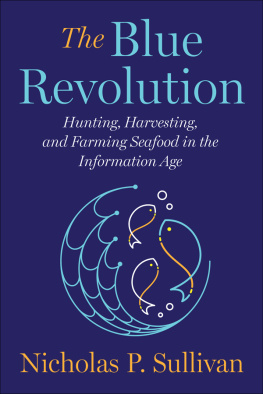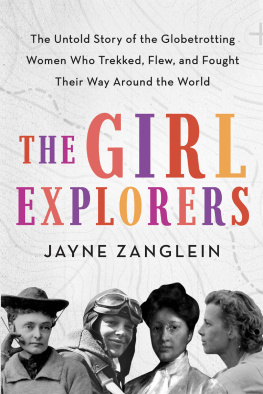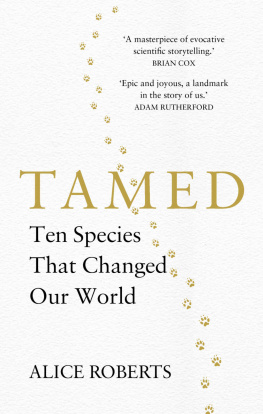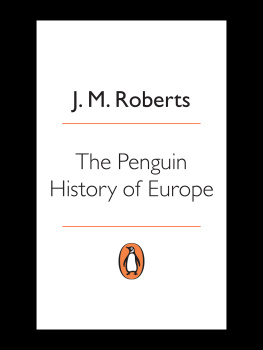A S H E A R W A T E R B 0 0 K
Callum Roberts





To Julie,with love and thanks
PART ONE: Explorers and Exploiters in the Age of Plenty
PART Two: The Modern Era of Industrial Fishing
PART THREE: The Once and Future Ocean
LATE ON A hot June night in 1798, Captain Edmund Fanning was roused from sleep by urgent pounding on the deck above his cabin and the clamour of sailors running to their stations. He reached the deck just as the lookout called out "breakers close aboard." Fanning's ship was running fast ahead of the wind and by the time danger was spotted in the darkness, they were almost upon it. A clearing shower revealed a shadowy necklace of islands wreathed in an almost continuous sheet of foam where Pacific swells exploded onto submerged coral.
Fanning and his crew barely escaped destruction. His men tacked the ship and followed the line of thunderous breakers until they found calm water to the lee of the islands. As they breakfasted the next morning, the relieved sailors could see some fifty islets circling three shallow lagoons, none more than two meters above sea level. Most were forested with tall Pisonia trees while their shores were fringed with coconut palms below which nuts had accumulated and decayed over the course of years, untouched by any human hand.
Palmyra Atoll lies almost in the dead centre of the Pacific Ocean. For i8o years following the first successful passage by Ferdinand Magellan in 1519, it remained unknown to the adventurers who crisscrossed the Pacific. Fanning found it because the atoll lay on a direct line between the Isle of Juan Fernandez, off the coast of Chile, and China, where he was headed. Fanning and his men, originally from Stonington, Connecticut, had just spent four months on Juan Fernandez, slaughtering fur seals for their pelts to sell in Canton. When he finally set sail the skins so crammed the hold, the cabin, and the forecastle that there was barely room for the crew. At noon, Fanning embarked in a row boat with a shore party to explore Palmyra. He was stunned by the great abundance of fish they saw, he later recounted.'
The sharks here are very numerous, and while the boat was on her passage into the bay, before she entered the pass, they became so exceedingly ravenous around her, and so voracious withal, as frequently to dart at, and seize upon her rudder and her oars, leaving thereon many marks of their sharp teeth and powerful jaws; but so soon as she left the pass and entered within the bay, they deserted her, their stations being instantly occupied by multitudes of fish, less rapacious, but infinitely more valuable.
While his men collected coconuts ashore, Fanning occupied himself catching mullet that crowded the sides of the boat so thickly that he could spear them without letting go of the harpoon shaft. He took over fifty of 2 to 5 kilograms (5 to 12 pounds) before deciding that any more would spoil before the crew could eat them.
More than two centuries have passed since Fanning's discovery. Palmyra passed from American to French, then to Hawaiian hands, but it was never colonized, perhaps because it was too remote even by Pacific standards. It was briefly a U.S.Naval air command base in World War II and the debris of conflict still litter the islands and lagoons. But underwater, it remains much as Fanning described it. Palmyra is one of the last places on this planet where shallow water marine life is still as varied, rich, and abundant as it was in the eighteenth century. A diver stepping into the seas around this atoll today is able to take a trip back in time to an age when fishing had not yet touched life in the sea. Beneath the swells, great coral-built ramparts front the open ocean, crusted with spreading colonies that cover the reef in bright colored plates, mounds, knobs, bushes, and folds. Above them countless tiny fish pick plankton from the water. Magnificent shoals of white and black striped convict surgeonfish, each the size of a hand, stretch into the distance, seemingly with no beginning and no end. Groups of blue-green bumphead parrot fish forty strong pass by gatherings of Napoleon wrasse as large as people. Above them milling schools of jacks cast predatory eyes over the fish below. Sharks hove in and out of view, gliding effortlessly across the reef, cutting tunnels through scattering clouds of fish as they pass.
Palmyra has more apex predators-large fish like sharks, jacks, and groupers-than any other reef known to science. Added together, there are nearly twenty times as many big fish here as on the average reef that is exploited by people for food. In the year 2000, Palmyra was bought by The Nature Conservancy to manage as a wildlife refuge for the benefit of humanity. It remains virtually unfished, apart from a small amount of catch-and-release recreational angling.
Palmyra's isolation has spared it from the scourge of human overfishing below water. But the vigilance of conservationists is necessary to keep it pristine. There are other atolls in the nearby Phoenix Islands that have been stripped of their sharks in a few weeks by roving pirate vessels that hunt without license or permit. They operate much as Fanning and his fellow sealers and whalers once did, roaming the oceans in search of places where money waits to be caught. The grand residences of Stonington and dozens of other New England ports were built with barrels of whale oil, seal pelts, and salt cod. Throughout much of the world today, however, fishing is no longer an occupation where fortunes can be made by law-abiding captains.
In just the last fifty to a hundred years, the brief span of a single human lifetime, people have spent much of the wealth of oceans, although the effects of overexploitation can be traced back much further in time. Today's generations have grown up surrounded by the seeming normality of coasts and seabed scarred by the rake of thousands of passes of the bottom trawl, and emptied of much of their riches.
Every year I take a student class to Grimsby, on the Yorkshire coast of England, to sift the sand and mud of the foreshore for worms. This once mighty Victorian fishing port sits at the mouth of the Humber Estuary facing the North Sea. Its fish dock juts like a wedge into the mudflats, reclaimed by nineteenth-century engineers to service hundreds of fishing vessels. In its heyday, boats crammed the harbor, five or ten abreast, and the quayside thronged with fishers, auctioneers, merchants, and carriers. At dawn, great cod and halibut covered the fish market floor, so large they were sold individually. Today the dock stands almost empty, although Grimsby is still a center for trade in fish plucked from far distant waters, like those of Iceland, Africa, and even Pacific islands.

